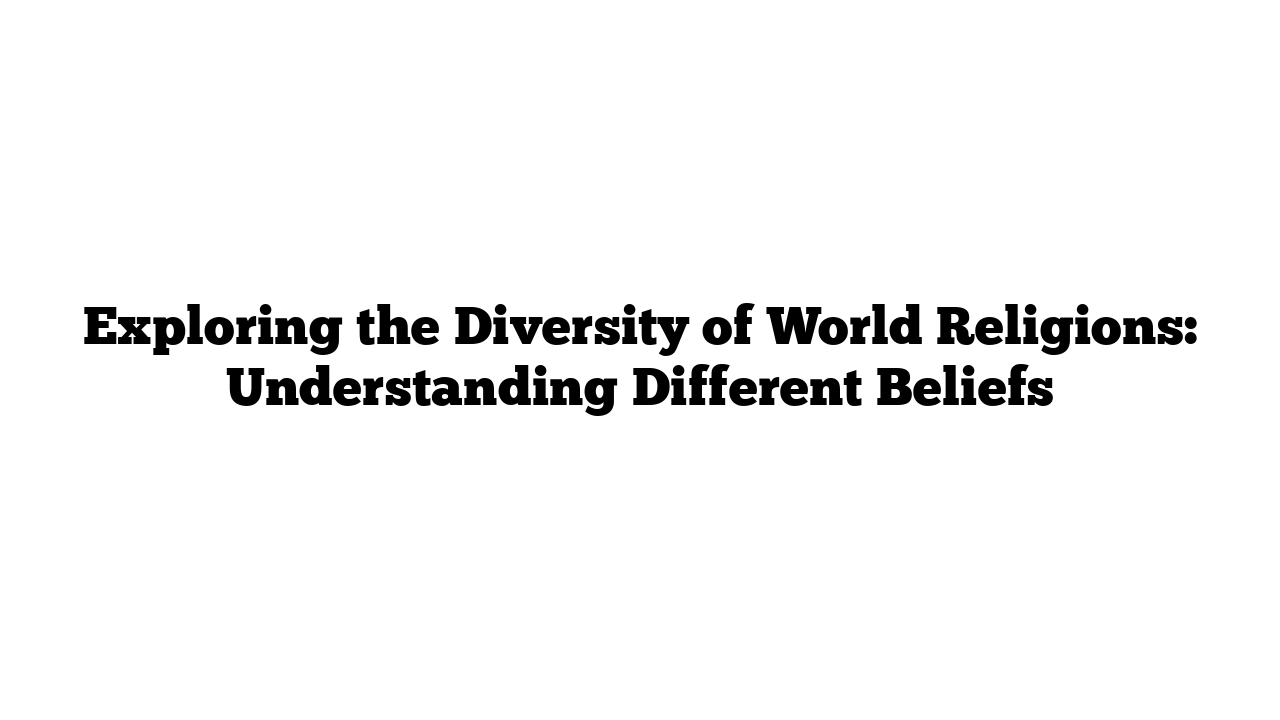Why are there so many religions? The answer lies in how diverse cultures and individuals respond to life’s biggest questions. Here, we’ll delve into various religions, examining their core beliefs, practices, and the questions they aim to address.
1. The Question of God
Many religions seek to answer the fundamental question: Is there a God? Some people identify as atheists, lacking belief in any deity or spiritual existence. Interestingly, atheism isn’t a blanket rejection of God; some simply do not hold a belief that God exists, often leaning toward a more agnostic viewpoint. Generally, atheists tend to view reality through a materialistic lens.
Conversely, some who don’t believe in a traditional God still embrace spirituality. Buddhism, for example, doesn’t posit Buddha as a deity, nor does it focus on gods. Instead, it presents the idea that life fundamentally involves suffering. Here are the Four Noble Truths central to Buddhist philosophy:
- Life is suffering.
- Suffering stems from desire.
- By relinquishing desire, one can end suffering.
- There is a path to overcome desire.
The Path to Spiritual Freedom
Buddhism teaches that attachment leads to disappointment. For example, desiring acceptance from someone often results in hurt when rejection occurs. The more you crave worldly pleasures, the more pain you may experience when those desires are unfulfilled. By denying these desires, one can attain Nirvana, which represents true spiritual freedom and bliss.
2. The Freedom to Choose
Not everyone wants to deny themselves for spiritual fulfillment. Some people gravitate toward forms of spirituality that emphasize self-affirmation rather than submission. This belief system encourages individuals to carve their own spiritual paths, fostering a sense of autonomy that resonates especially with Western audiences.
3. The Many Faces of Deity
Polytheism: Believing in Many Gods
Some religions, such as Hinduism and various forms of paganism, embrace polytheism—the belief in many gods. Each deity often embodies aspects of nature, with specific gods associated with the sun, moon, sea, and crops. For pagans, connecting with these deities can be vital for success in various life endeavors.
Hinduism: A Unique Perspective
Hinduism presents a more complex view of divinity. Although many gods exist, they are manifestations of the one Ultimate Reality. This perspective allows for diverse practices and beliefs, similar to a buffet where followers can choose what resonates with them.
Hindus also believe in karma and reincarnation, suggesting that actions in this life impact future existences. Thus, they view the universe as a cyclical journey, where moral actions can elevate one’s status in the next life.
4. Sikhism and Its Core Beliefs
Sikhism recognizes one God, akin to Hinduism, but strictly rejects idol worship. Sikhs view God as a mysterious entity that can be known through the teachings of gurus. Their practices emphasize equality and justice, focusing on serving others.
5. Abrahamic Religions: Judaism, Christianity, and Islam
Judaism: A Chosen People
Judaism sees itself as the chosen faith, tasked with promoting righteousness in the world. While some Jews strictly adhere to the Torah, interpretations vary. They believe in an awaiting Messiah, a figure who will bring about global change.
Christianity: The Divine in Human Form
Christianity fundamentally differs, teaching that God became human in the form of Jesus Christ. Christians believe that through Jesus’s life, death, and resurrection, humanity can bridge the gap between imperfection and divine perfection. Faith in Christ, facilitated by the Holy Spirit, is key to eternal life.
Islam: The Final Revelation
Islam acknowledges Jesus as a significant prophet but does not view him as God. Muslims believe that God provided revelations to various prophets, culminating in the final and complete revelation to Muhammad in the Quran. The essence of Islam is to submit to God’s will, emphasizing a single divine entity who governs the universe.
6. The Nature of God: Different Perspectives
While deists believe God exists as a detached creator (akin to a clockmaker), Abrahamic religions assert that God is deeply involved in human affairs. This foundational belief shapes how adherents interact with the divine.
A Thoughtful Reflection
Each religion provides unique answers to life’s profound questions. While some suggest that all religions are fundamentally the same, this perspective can inadvertently diminish the rich diversity of beliefs.
Religions invite us to reflect on our beliefs about existence, morality, and the nature of the universe. The pursuit of understanding these diverse paths can lead to greater respect and appreciation for one another’s journeys.
For further insights into various religions, consider exploring resources such as National Geographic or PBS Religion and Ethics. These platforms offer a wealth of information to deepen your understanding of world religions and their unique contributions to human culture and spirituality.
